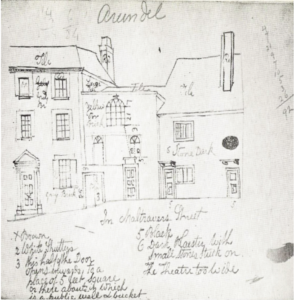Theatre Notebook is a journal of the history and technique of the British theatre. It interprets theatre widely, covering theatrical activities inside and outside theatre buildings, professional and amateur theatre, the business of theatre, stage design, the history of theatre buildings, acting technique, and theatre outside the British Isles that relates directly to the history and technique of British theatre.
The Editors of Theatre Notebook welcome offers of contributions that record, analyse, reinterpret and celebrate the achievements of British theatre practitioners from any period, including the very recent past. Essays that focus purely on dramatic literature are not considered.
The Editors recognise the crucial importance of a scholarly approach to facts and interpretation but have no theoretical preferences, recognising the importance of representing a wide spectrum of contemporary positions.
Theatre Notebook is published by the STR three times a year and distributed to subscribers. Back Issues can be bought separately. Browse the Back Issue index and order from there.
It is published as a paper journal (also available on Project Muse), with occasional essays also published on the website here.
All enquiries and offers of contributions should be addressed to the editor, Trevor Griffiths. See below for details of submission criteria.
Binders are available for back issues. Each binder holds two volumes (6 issues) of Theatre Notebook, plus relevant contents and indices inserts. To buy these, click on the relevant link.
£6 inc p+p in the UK
£7.50 inc p+p for Overseas.
